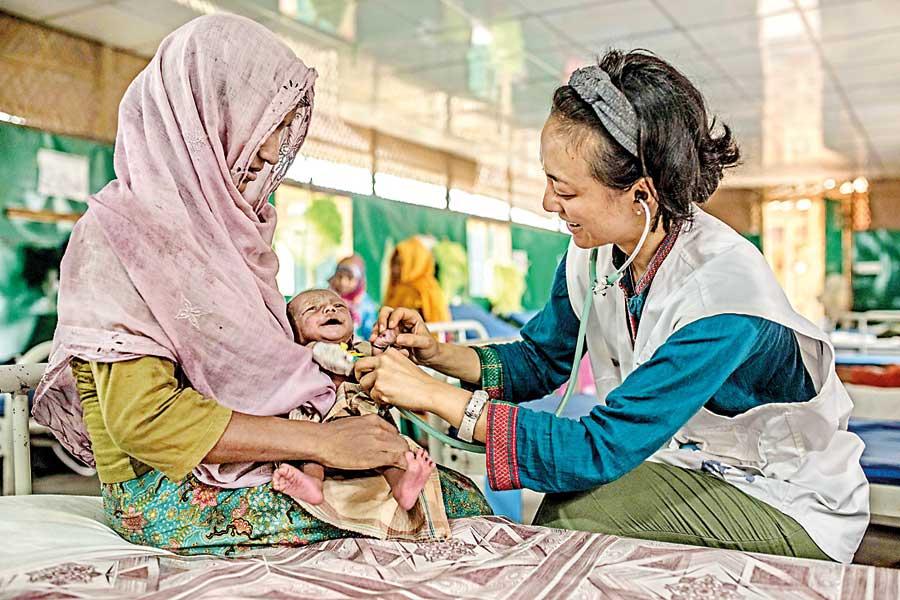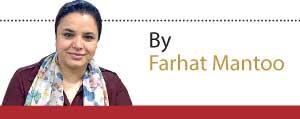11 Aug 2023 - {{hitsCtrl.values.hits}}
Current conflict landscape requires fresh thinking about how violence evolves and adapts to changes in political and economic environments

Only a few decades ago, access to basic medicine and treatments was a privilege, until collaborations between patient groups and the civil society movement overcame patent monopolies. Medecins Sans Frontieres (MSF)/Doctors Without Borders has had a crucial role to play for over 20 years now, working closely with civil society to ensure access to medicines.
monopolies. Medecins Sans Frontieres (MSF)/Doctors Without Borders has had a crucial role to play for over 20 years now, working closely with civil society to ensure access to medicines.
The resulting generic production and competition of anti-retrovirals brought prices down 99 per cent over 10 years, making treatment for hepatitis C, malaria, pneumonia, sleeping sickness and TB affordable and accessible.
This example illustrates the power of working together. However, this is more an exception than a norm as evidence points towards partnerships being tactical rather than strategic when it comes to humanitarian responses.
With the COVID pandemic, its vaccine politics and equitable accessibility making multiple fault lines visibly clear, the writing is on the wall – we cannot stay inert to social changes happening both locally and globally! Amid a range of contentions on how to engage with humanitarian aid more meaningfully and deliver it more efficiently, the pandemic emerged as a challenge to many misnomers of humanitarian aid.
The resulting generic production and competition of anti-retrovirals brought prices down 99 per cent over 10 years, making treatment for hepatitis C, malaria, pneumonia, sleeping sickness and TB affordable and accessible
The notions we humanitarians had held strongly were tested and flipped, providing an opportunity to reflect on ‘what’s working’ and examining the complexities of imperfect institutional designs, their level of support for inter-sectoral coordination and intergovernmental coherence, challenges of last-mile delivery and the impact of prevailing political appetites. Today, we find ourselves in the middle of a changing landscape – transformational partnerships over transactional partnerships – for better delivery of humanitarian aid.
This evolution is sophisticated, agile, people-centred, and grounded in the values of equity, impact and sustainability. There is a greater push towards ‘localisation’, in order to ‘shift power’ towards more locally-led development and global discussions.
In recent years, MSF has adapted to these changes, increasingly revamping its health systems, human resource structures and operational processes with locally-led voices and exchanges to deliver efficient and effective ‘localised’ humanitarian aid and medical care. Yet, adding value to the potential of civil society organisations as ecosystem builders warrants more action. By building a space for dialogue, we can help bridge these divides, and by connecting local actors, we can facilitate knowledge exchanges to understand each other better. Putting together a coalition of ideas and intent requires recognition of local complexities and needs patterns; unbiased, straightforward and reliable assessments; and sharing of information that can inform strategic and operational decision-making for quick responses.
Another phenomenon that impacts humanitarian aid is political violence, pervasive in 2022, and will likely continue to proliferate in the second half of 2023. In 2021, the Armed Conflict Location and Event Data Project (ACLED) estimates that 20 percent of the world’s population (roughly 1.7 billion people) experienced some level of political violence.
Another phenomenon that impacts humanitarian aid is political violence, pervasive in 2022, and will likely continue to proliferate in the second half of 2023. In 2021, the Armed Conflict Location and Event Data Project (ACLED) estimates that 20 percent of the world’s population (roughly 1.7 billion people) experienced some level of political violence
The current conflict landscape in 2023 requires fresh thinking about how violence evolves and adapts to changes in political and economic environments; the diversity of forms that suffering takes, especially online; who fights, where, and when; the ability of actors to consolidate and coordinate; and the spread and impact of leakages in aid delivery. These are among the most critical factors to consider when shaping humanitarian intervention and discourse. In addition, the frequent framing of migrants as threats and relating them to security and terrorism have brought pressure on the provision of impartial health and humanitarian aid to these populations. Economic migrants and displaced peoples’ ability to move between countries, seek asylum and access healthcare has been severely curtailed. In response, countries have tightened their borders; however, the solution needs collective political will.
The climate emergency too poses profound ethical challenges that require a new set of action-guiding principles and dialogue with partners at all levels. Lack of awareness of intersectionality with climate emergencies lessens the scope and impact of humanitarian action. While human mobility, information accessibility, and unrestricted funding are the key factors influencing its successful outcomes the scale of success for delivery of humanitarian aid demands ‘without borders’ technological advancements and medical knowledge transfers that reduce duplications and amplify best practices.
If the humanitarian community is to put partnership into practice, organizations like MSF will need to focus less on the direct implementation of emergency response projects and instead prioritize developing partnerships with local actors better positioned to gauge needs and build responses
The traditional approach to humanitarian aid, marked by top-down interventions and unilateral decision-making, is no longer sufficient for the complex and interconnected global crises. The emergence of new challenges demands a paradigm shift towards a more comprehensive and collaborative response.
If the humanitarian community is to put partnership into practice, organizations like MSF will need to focus less on the direct implementation of emergency response projects and instead prioritize developing partnerships with local actors better positioned to gauge needs and build responses.
Investing in and developing partnerships with organizations that are experts in their areas is essential to maximize the impact and efficiency of humanitarian aid delivery.
We need to strive for the creation of inclusive spaces that bring together diverse participants—humanitarian organizations, local communities, governments, academia, and affected populations—to foster open dialogue, collaborative problem-solving, and knowledge sharing. Such platforms would facilitate learning from experiences, identifying emerging challenges, and collectively developing innovative strategies to address humanitarian crises. The international community needs to invest in fostering meaningful engagement and cooperation to build a stronger, more effective humanitarian response system.
The author is Executive Director at Médecins Sans Frontières (MSF)/Doctors Without Borders, South Asia
10 Jan 2025 1 hours ago
10 Jan 2025 1 hours ago
10 Jan 2025 2 hours ago
10 Jan 2025 2 hours ago
10 Jan 2025 2 hours ago